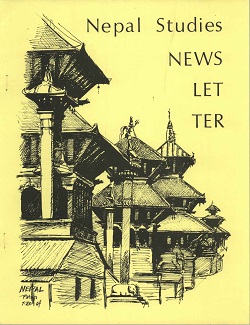Author Biography
Katarina Turpeinen (PhD, Religious Studies, University of Virginia, 2015) is a Postdoctoral Fellow at the University of California, Berkeley. She specializes in Indo-Tibetan Esoteric Buddhism, particularly the Tibetan Great Perfection tradition. Her main research project analyzes an influential 14th century anthology, The Unimpeded Realization of Samantabhadra, revealed by Rigdzin Gödem. During her four and half year period of doctoral fieldwork in India and Nepal, she also researched the Tibetan oracular tradition resulting in this article. Before her appointment at UC Berkeley, she worked at Vanderbilt University as a Visiting Assistant Professor and University of Virginia as an Adjunct Professor.
Abstract
This paper contributes to the study of Tibetan oracles by analyzing a distinctive case of a contemporary Tibetan oracle living in exile in India. The oracular practice and personal history of Lhamo, or ‘Goddess,’ present several unusual features compared to other ethnographic accounts of Tibetan oracles. The ritual of possession is performed behind closed doors hidden from clients, and the medium typically engages in oracular ingestion multiple times during every trance. Her trance sessions also appear orderly and lack an intermediary figure who decodes the oracle’s enigmatic statements. What do these features of her oracular activities illustrate? How do they feature in her life story and relationships to other religious specialists in the area and the surrounding community? This paper outlines my ethnography of Lhamo’s practice and situates it in the context of Tibetan oracles, arguing that Lhamo’s oracular possession, which is a practice of a village oracle often regarded as involving mainly mundane and pragmatic ends, is conspicuously integrated with the soteriological, supramundane orientation of Buddhism.
Acknowledgements
The author would like to thank Lhamo Pema Khandro for patiently answering her questions in a series of interviews and allowing her to witness the possession rituals. She is also grateful to the nuns of Tsho Pema, especially Ani Yangtsen Drolma for guiding her in the social dynamics of the village, as well as Prof. Jacob Dalton for offering many helpful suggestions that shaped her writing.
Creative Commons License

This work is licensed under a Creative Commons Attribution-Noncommercial-No Derivative Works 4.0 License.
Recommended Citation
Turpeinen, Katarina. 2019. The Soteriological Context of a Tibetan Oracle. HIMALAYA 39(1).
Available at:
https://digitalcommons.macalester.edu/himalaya/vol39/iss1/8


